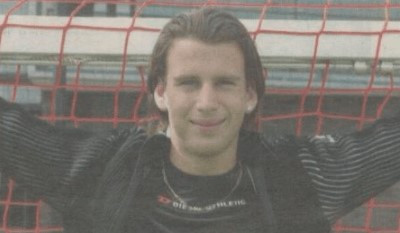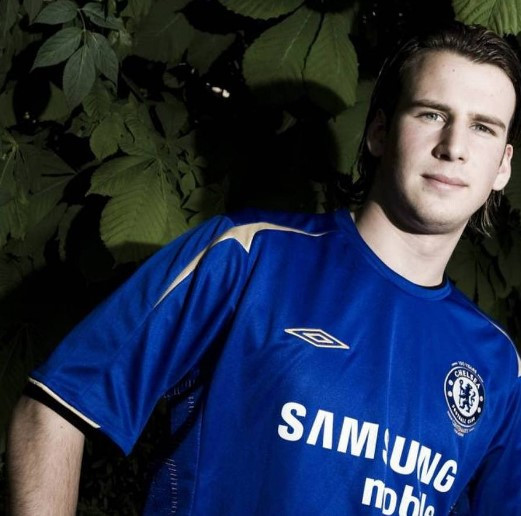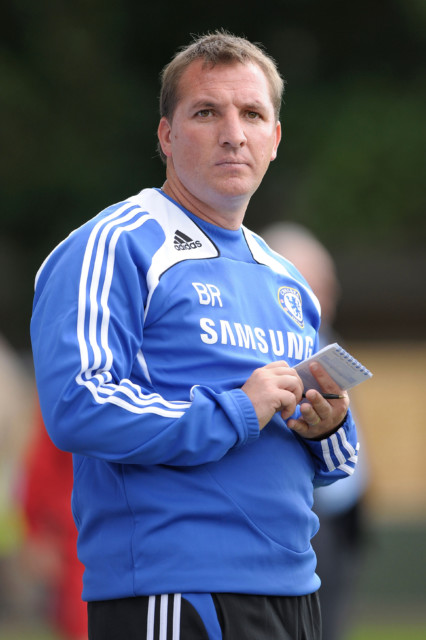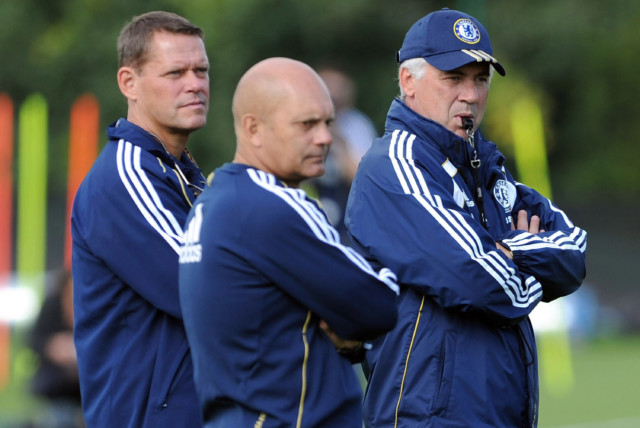PER Weihrauch should have been heralded as one of the world’s best players in the game today.
The talented Dane had the world at his feet and starred at youth level for Ajax and Chelsea.
However, he had his career cruelly robbed from him through injury.
At 19, Weihrauch was told by a specialist that he should forget about a career in football and accept an insurance payout.
Try as he might, the winger didn’t give up on his dream and returned to Denmark, where he played on a part-time basic.
But it was never enough to get back to the level he had promised.
Last year, aged just 32, Weihrauch was found dead at his home. This is his tragic story.
LOCAL TALENT
As a teen, Per was one of the leading lights of his generation.
He was coached by Brentford boss Thomas Frank and his assistant manager Brian Riemer at local club Hvidovre IF.
Riemer told The Athletic: “Per had the full package.
“He liked to come inside from the wing position in a 4-3-3, but he could also play as a striker.


“Good physique, intelligent, great shooting ability, great first touch, good in the box, great heading ability.
“He was one of those players who could create something for a team-mate or do it on his own. He was a fantastic talent.”
It wasn’t long before the Europe’s top clubs registered an interest. Atletico Madrid, Ajax, Chelsea, Manchester United and more were desperate to sign him to their academies.
A NEW EXPERIENCE
To continue his football education, Per went to Ajax – famed for bringing the best young Danish players through, including Jan Molby, Soren Lerby and Christian Eriksen.
But it ended up being somewhat of a nightmare for the wonderkid, who struggled to settle.
He then got what appeared to be a fairly normal hamstring injury on tour, but under pressure to show his ability he played on and made it worse.
“What I miss the most are friends and family,” Weihrauch told Danish newspaper Lokalavisen – hinting about his loneliness in Amsterdam.
“After training here, you can’t just go home to see one of the boys.
“Of course it’s hard sometimes, especially when you’re injured. Then it’s boring to sit down here alone.
“You’re here to play football — and that’s the only thing you can’t do when you’re injured. Then the days can get long inside a gym.
“But every day I get up and I look forward to going to training, so it was the right decision (to join Ajax).”
Injuries took their toll, though. With his contract expiring, it looked unlikely it would be renewed by the Dutch club.
‘COME TO CHELSEA’
In 2006, fellow Dane Frank Arnesen, who knew Per from his time at Ajax, brought Weihrauch to Cobham.
It was there he impressed Brendan Rodgers – Chelsea’s then-youth coach.
“I remember Per so clearly,” Rodgers revealed.
“He was a very, very talented young player right out of the Ajax mould. He was a winger, but he was strong physically.
“He could play in a number of positions, he could play wide on either side or he could play as a striker or a No 10. He was very gifted on the ball, fast.


“He came in at 17 and he was already above the youth team. He went straight into our reserves and you could absolutely see his undoubted natural ability and, obviously, his work rate.
“He wanted to work, wanted to run. Amazing ability on the ball to beat a man. He wasn’t a small winger, he was a good size — the build of a midfield player — and such a big talent.”
THE INJURIES FOLLOWED HIM
Despite a fresh start in London, Per couldn’t escape his injury problems.
On Chelsea’s part it was a gamble. But one that didn’t pay off.
Frank Arnesen said: “We knew about the injury problems he had, but we wanted to give him a chance.
“If he could get back to his true level, he would be a great player. He played some games, did well, but then, unfortunately, he got injured again.”
A scan showed scar tissue around his hamstring. He was told the only thing for it was rest, then after it has healed he would be able to build up the strength in his leg.
If he didn’t, his career would be over.
“Sometimes it’s unfortunate that the body just can’t cope with the intensity of training and the work,” Rodgers told The Athletic.

“And that was clearly the case with Per. It was nothing to do with talent — he was a hugely talented player.
“He could have gone on and been a really top player, because he had the game for it, but he just couldn’t build up the rhythm and consistency.”
IT’S OVER
Weihrauch went to Finland for an operation that was hoped would fix his injury problems.
However, it didn’t work. After seeing various specialists, the answer was the same.
His hamstring wouldn’t be able to survive the hardship of the modern game.
He was advised to retire and accept a minimal insurance payout for loss of future earnings.
Per was still only 19 at this point.
MAKING A COMEBACK
Desperate not to give up the ghost, Weihrauch returned to his first club Hvidovre in 2009.

Despite much fanfare about his arrival, he was unable to aid the club’s dream of returning to the Danish top flight.
Both parties decided it was impossible, but an offer from amateur team FC Copenhagen gave him hope.
Per played to around 70 per cent of his abilities, when he got the chance, and he told Ekstra Bladet in 2009, “It is definitely my goal to get my career going. I’m hoping for a new professional contract.”
But a new contract never came. Again, forced out of training for a year he realised now it was time to give up on a playing career.
He found a new life as a scout, working with his long agent Soren Lerby who managed clients including Pierre-Emile Højbjerg.
Then, after returning to college and finishing his studies, he managed to score a job at Nordea in the financial sector of a bank in Denmark.
However, the disappointment of a promising career ending prematurely was perhaps too much to bare.
His death came as a surprise.
“Sadly, I lost contact with him over the last years,” Riemer said.
“My impression is that he seemed to withdraw himself. Not many who knew him from his football days had contact with him in the last year or so.”
Riemer continued: “It’s difficult to talk about, even now. I try to stand back from the situation and I think to myself, ‘Per, why didn’t you call me? I would have done anything to help you’.
“But it was too late. I don’t think he felt he had the strength left.”

